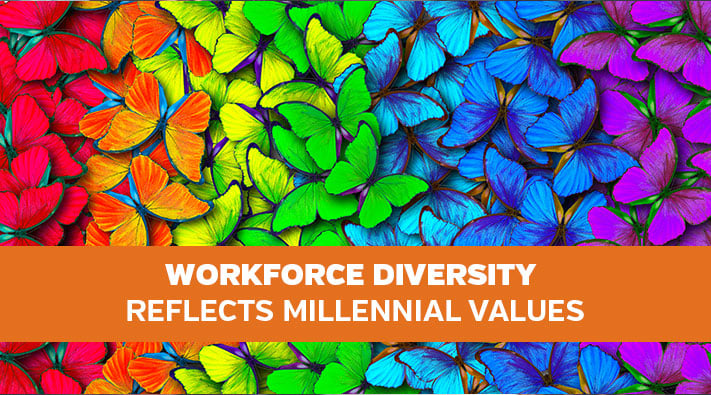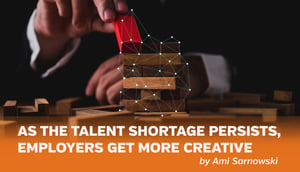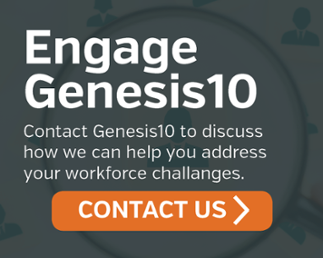Diversity and inclusion programs in American workplaces have generated more attention over the past several years, in part because of the millennial generation. Workers are pushing for change and making diversity a core hiring priority for our nation’s employers.

“Today’s in-demand tech talent wants to work for a business that promotes and prioritizes diversity in the workplace,” Forbes reported recently. It’s all part of a growing movement, occurring not just in tech, of workers using their strength in numbers to make real change, states an NPR report.
What’s more, employees and job applicants are aware of how an employer treats its partners and contractors, said Sam Stern, Principal Analyst at Forrester: “People want their employers to share their values.” Today, diversity and inclusion spans beyond the traditional definition of workplace diversity focused on race, religion, age, gender and physical ability but also to include cognitive diversity which is about how different points of views are accepted and valued, creating a sense of belonging. Studies show that Millennials will expand the traditional definition of diversity to include a mix of experiences, identities, ideas and opinions, placing more value on making a difference then just driving results.
Strong social consciousness
It’s a sentiment that’s growing stronger. A 2018 MetLife poll found that 70% of employees believe employers should address society’s problems, an increase from 63% in 2017. Social consciousness is especially strong among the Gen Z and Millennials, two cohorts known for starting or stopping relationships with companies whose actions have positive or negative impacts on society.
Perhaps it’s why employers are adopting mindsets that coincide with what the younger generation seeks. In Deloitte’s 2019 Global Human Capital Trends report, 44% of business and HR leaders surveyed said social enterprise issues are more important to their organizations than they were three years ago, and 56% expect them to be even more important three years from now.
The c-suite has come around as well. When CEOs were asked to rate their most important measure of success in 2019, the number-one issue they cited was “impact on society, including income inequality, diversity, and the environment.”
Maybe Peter Smith, a former editor with Spend Matters UK/Europe, sums up recent trends best: “While we might all want to do the right things because of our own personal views, the fact is, it also makes sense because our customers expect firms to behave in a certain way. It’s also become a factor in the war for talent; it is easier to attract the brightest and best staff if they can see the organization has a worthwhile wider purpose, rather than purely a profit maximization motive.”
Current employees and potential hires are raising the stakes, asking about diversity and inclusion initiatives. Increasingly potential hires will decline an offer if the company does not reflect their core values and cannot effectively explain and demonstrate the company’s Corporate Social Responsibility (CSR) initiatives. Expectations have moved past hearing about core values to seeing action.
In fact, when Millennials seek out new roles, a company’s policies on diversity and inclusion as well as its CSR initiatives are just as important to them as the salary and benefits. Here are 5 most asked about topics during the interview process:
5 Most Asked About Topics When Evaluating A Company
- Culture of acceptance and inclusion
- Corporate Social Responsibility initiatives
- Investment in current employees training, and professional development
- Compensation packages to include benefits, perks, and wellness programs
- Rewards and performance recognition programs
What is clear is that diversity and inclusion is a business imperative, and in some cases will be the difference between a potential hire accepting or declining an offer to work for your company.
Continue the conversation on workplace diversity and inclusion--subscribe to the Genesis10 blog.
Related
 As the Talent Shortage Persists, Employers Get More Creative Workforce Strategists and HR have their hands full as they tackle workforce constraints. Unfortunately, there is no silver bullet and a multi-pronged strategy will need to be developed. Read more...
As the Talent Shortage Persists, Employers Get More Creative Workforce Strategists and HR have their hands full as they tackle workforce constraints. Unfortunately, there is no silver bullet and a multi-pronged strategy will need to be developed. Read more...
















